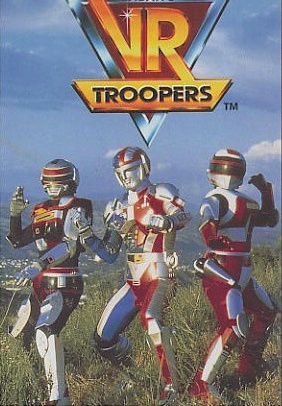Fried Flounder: Virtual Reality is Being Marketed Poorly
By TheFlamingo352 2 Comments
Finals are done and extended family is yelling at me over the phone: the holidays are here, and this is Fried Flounder, my vaguely-scheduled attempts at critical writing.

This past week my brother and I had our first foray into virtual reality, chipping in together on PSVR, wondering what all this virtual hullabaloo was about. I had originally intended this to be a write-up on my initial impressions of the system, and of VR as a whole, but as tends to happen, a more interesting subject revealed itself while writing.
After some hours in the headset, something among my impressions of VR, following the initial jitters and hyperbole, was unfortunately familiar: a lack of compelling software. Quality VR games at decent prices can be difficult to find, and while I suspect this problem is somewhat alleviated on more-open PC platforms like the Rift or Vive, low player counts in online multiplayer experiences like EVE: Valkyrie (2016) paint a worrying picture. For the record, I don’t think VR is going the way of the Kinect (i.e. extinction), but that doesn’t mean it’s bound for success, either. If hopes- corporate or otherwise- of world-changing sales are to be fulfilled, current marketing of virtual reality has to change.
As said marketing currently stands, “VR...has to be experienced to impress.” Oculus’ multiple demo stations at Best Buys across the US seem to agree, not to mention the similar deal Sony signed to showcase their own PSVR peripheral in those very same stores. Compare this push for demo headsets across the country with the relative dearth of advertising from all three major headset developers- HTC, Oculus, and Sony. Now, I understand the “VR...has to be experienced to impress” angle; we’re talking about a revolutionary technology, the kind whose software potential hasn’t nearly been met, and whose actual strengths are mired in a public perception of virtual reality that could be decades-old and far less impressive. The lack of traditional advertising of VR platforms astounds me, nonetheless, despite the above arguments by which VR headset retailers are presenting their product.

Put plainly, VR isn’t being advertised enough to financially live up to the ambitions of its greatest champions, in part because it seems these champions, including Oculus CEO and political disappearing-act Palmer Luckey, seem to think “Virtual Reality is inevitable.” It’s a romantic notion, to say that your tech is so good that it won’t need advertisements, or broader marketing, to be successful. Really the only ones at fault for VR not changing the world are the ones who haven’t bothered to try a headset on. Yeah, I think VR is damn cool (I get rabidly excited every time Windlands (2016) boots up), but to think a platform will be invariably successful with enough time is awfully naive. VR isn’t above a television slot or Youtube ads.
The long game thankfully isn’t so dire, with Oculus’s efforts in wireless HMDs (Head-mounted displays), as well as their recent partnership with Insomniac, giving a glimpse of what the next generation of virtual reality might look like. Personally, I’d like to see greater exposure for VR through asynchronous cooperative play between VR and TV players; imagine something akin to Titanfall, TV players as pilots and VR players as titans. It’s reaching into fanciful conjecture, I know, but the possible breadth of exposure such a game could offer VR is compelling nonetheless.
What do you guys think, though? Will Rifts and Vives crash as a gimmick, or will virtual reality permeate lives in the ways we’ve been told to imagine? I’m taken to think the latter, but not without some course correction.
**This, for reference, is discussing high-grade VR headsets: HTC Vive, Oculus Rift, and PSVR. More affordable products like Google Daydream and Samsung’s Gear VR, made in partnership with Oculus, were deemed different enough from the above to be excluded.
